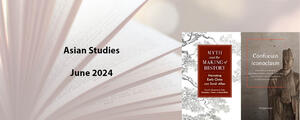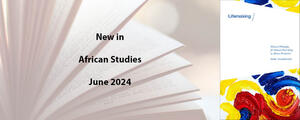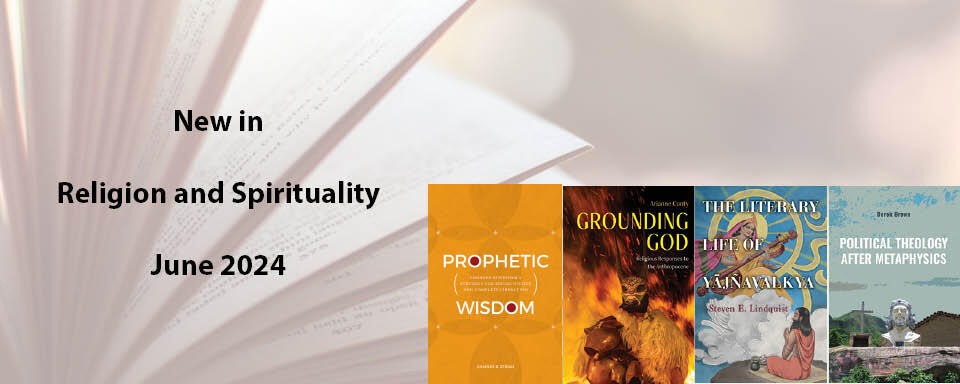
New This Month in Religion and Spirituality - June 2024
Our Religious Studies series is broadly conceived to include analyses of particular aspects of a religious tradition; thematic comparative studies; and focused studies of religion and society in areas such as the arts, law, economics, the social sciences, and politics. New this month in the series, Prophetic Wisdom: Engaged Buddhism's Struggle for Social Justice and Complete Liberation, by Charles R. Strain, shows how Engaged Buddhists can expand their understanding of the causes of collective suffering and develop nonviolent means for social transformation through a dialectic of love, power, and justice.
"Well-written and evocative, Strain's book makes the case for a new form of prophetically inspired and socially engaged Buddhism. With immense suffering being generated today by systemic structures of oppression, the collaborative partnership of contemplative traditions (such as Buddhism) and socially conscious sensibilities (such as those of the Hebrew prophets) is both timely and potentially transformative." — Will W. Adams, author of A Wild and Sacred Call: Nature–Psyche–Spirit
"This is a comprehensive assessment of the Engaged Buddhist movement from one of its veteran practitioners. It marries the strengths of the movement with prophetic strains, producing a mutually empowering and illuminating synthesis." — Jason M. Wirth, author of Mountains, Rivers, and the Great Earth: Reading Gary Snyder and Dōgen in an Age of Ecological Crisis
New in paperback in our Religion and the Environment series, Grounding God: Religious Responses to the Anthropocene, by Arianne Conty, looks at how different religious traditions (Christian, Buddhist, neopagan, and animist) have attempted to resacralize the earth and provide new values that include the more-than-human world.
"This is an important and prodigiously informed contribution to our understanding of the intersections between religion and the Anthropocene (or Anthropocenes). Furthermore, it focuses on the ways in which religion both presupposes and potentiates certain kinds of ontologies that either protect nature or turn it into a cheap externality. In this sense, it is a contribution to what is called 'philosophical theology' or the 'philosophy of religion.' It has the additional virtue of being a comparative religious and philosophical text. The discussions of Fudo, neopaganism, and animism (or shamanism) are fascinating, very well informed, and most appropriate given the main thrust of the book, namely, to develop an ecosophia for the Anthropocene." — Eduardo Mendieta, Pennsylvania State University
New in paperback in our series in Hindu Studies, The Literary Life of Yājñavalkya, by Steven E. Lindquist, is a literary and historical investigation into an ancient Indian religious thinker, tracing his rise in importance in the Hindu tradition.
"Lindquist traces the textual references to Yājñavalkya from their pre-Buddhist beginnings to their classical and postclassical contexts, all while avoiding the pitfalls of mostly pointless inquiries into the 'historicity' of Yājñavalkya. As such, the book is unique within the field of Indology because it goes beyond the usual dismissive descriptions of such personalities as mere eponyms or arbitrary placeholders for sagely authority. In contrast, Lindquist shows how coherent features of thought and rhetorical style provided a solid core text-persona called Yājñavalkya, around whom a host of distinctive ideas and styles of debate and expression were carried through several genres of Vedic and classical Hindu sacred writing." — Donald R. Davis Jr., University of Texas at Austin
New in paperback in our series in Theology and Continental Thought, Political Theology after Metaphysics, by Derek Brown, argues for a revolutionary political theology that can be used to combat racism, sexism, and other forms of oppression.
"Brown's fundamental project in this book is to read an original series of formative texts in order to allow them to be put to work against racism and exploitation. Building, with utmost care, a rigorous scholarly foundation across the disciplines of political science, literary theory, philosophy, and theology, he argues, compellingly, that the contemporary racial diversity frameworks employed by institutions such as universities and colleges are more likely to aid capitalist exploitation than actually combat racism and oppression. This book will be an invaluable resource for courses that deal with race and racism, as well as for the numerous interdisciplinary committees and groups of scholars that are forming today in an effort to address the contemporary crisis of racism in the United States." — Frances Maughan-Brown, College of the Holy Cross
"Political theology is at a turning point, and this book helps rethink the options. Various forms of metaphysics, idealism, and the related theologies have reached an impasse because they are linked with the theologies of capitalism. In response, Brown introduces viable alternatives, drawing on original interpretations of their theoretical embodiments." — Joerg Rieger, Distinguished Professor of Theology, Vanderbilt University
Happy reading and come back and see what's new next month!
Books Mentioned In This Post
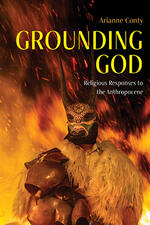
Grounding God
Religious Responses to the Anthropocene
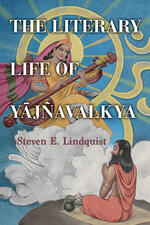
The Literary Life of Yājñavalkya
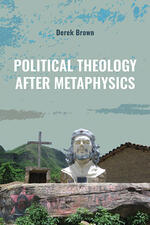
Political Theology after Metaphysics
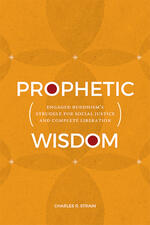
Prophetic Wisdom
Engaged Buddhism's Struggle for Social Justice and Complete Liberation
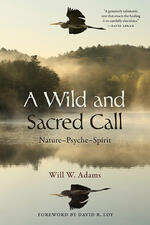
A Wild and Sacred Call
Nature–Psyche–Spirit
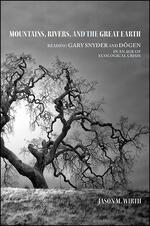
Mountains, Rivers, and the Great Earth
Reading Gary Snyder and Dōgen in an Age of Ecological Crisis
